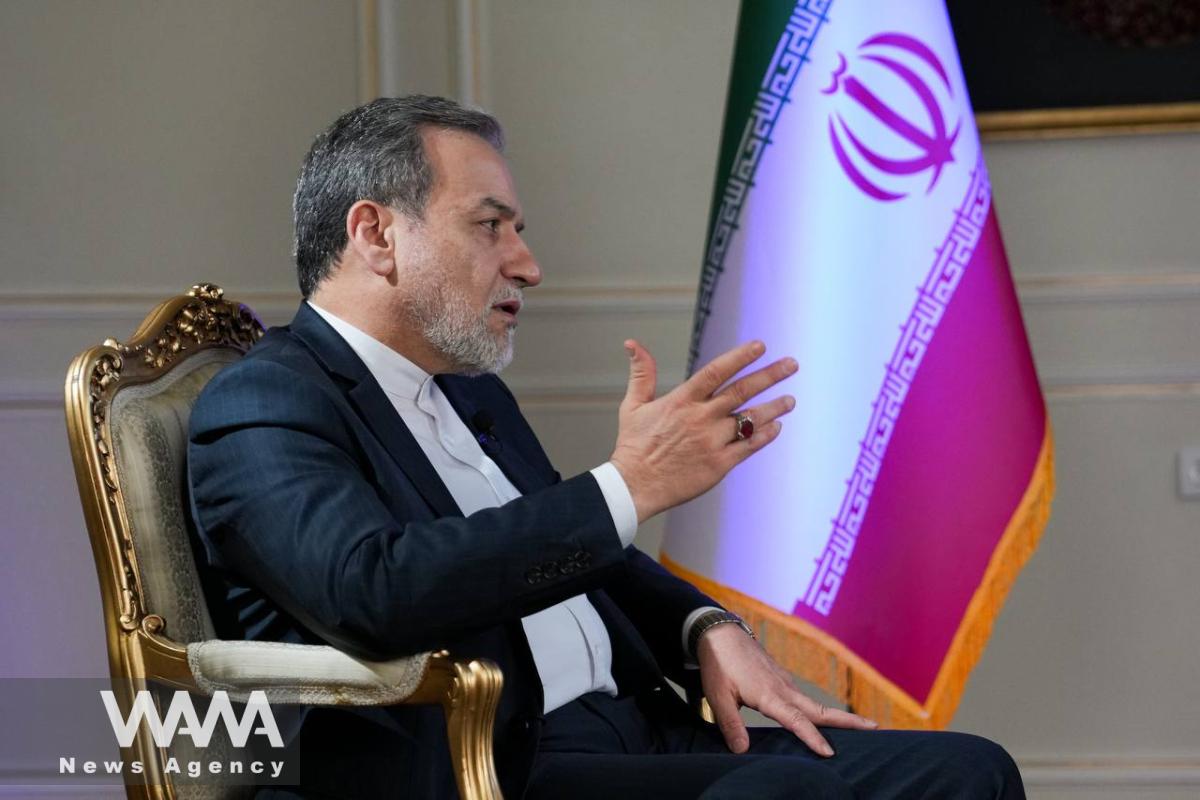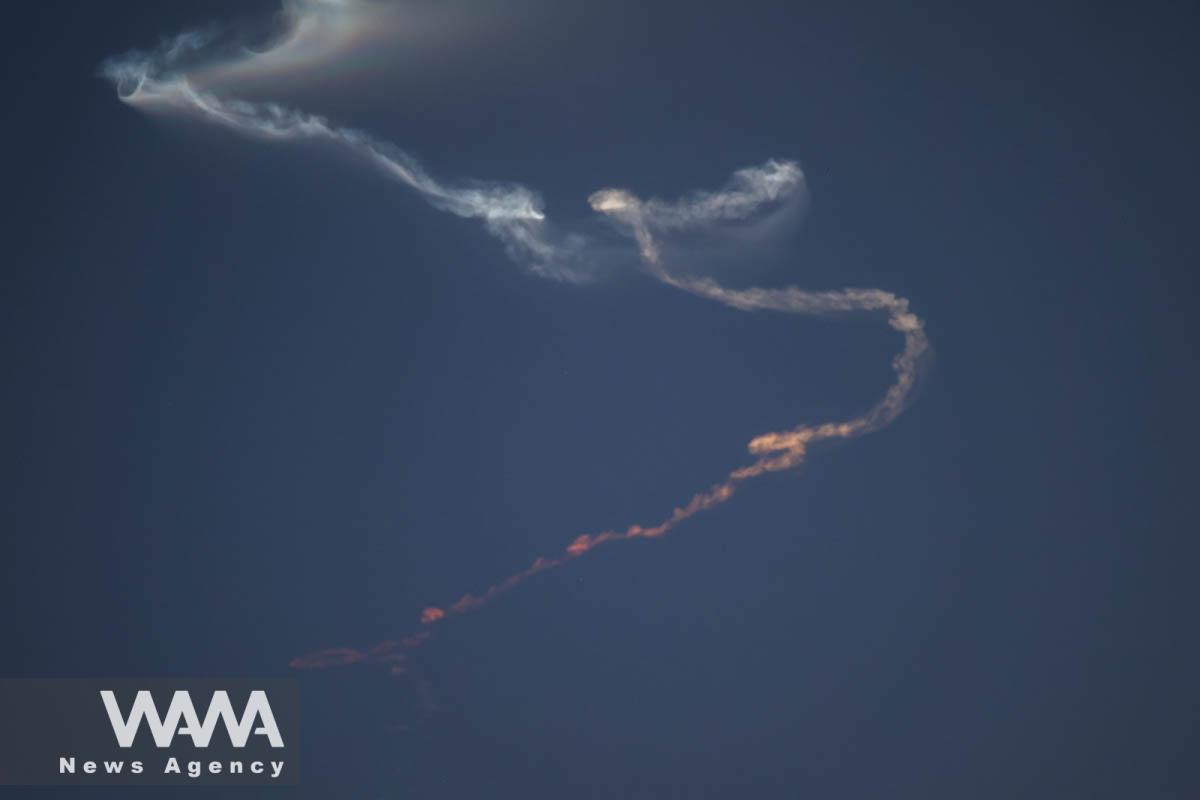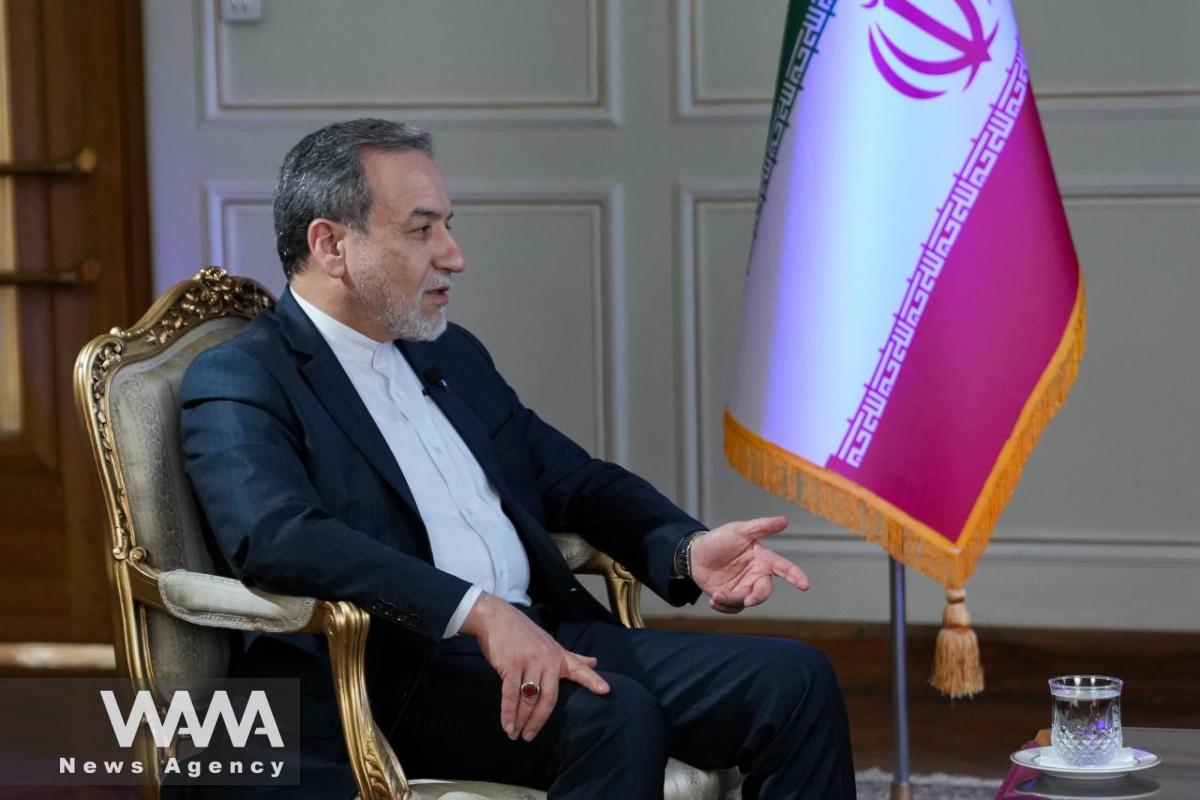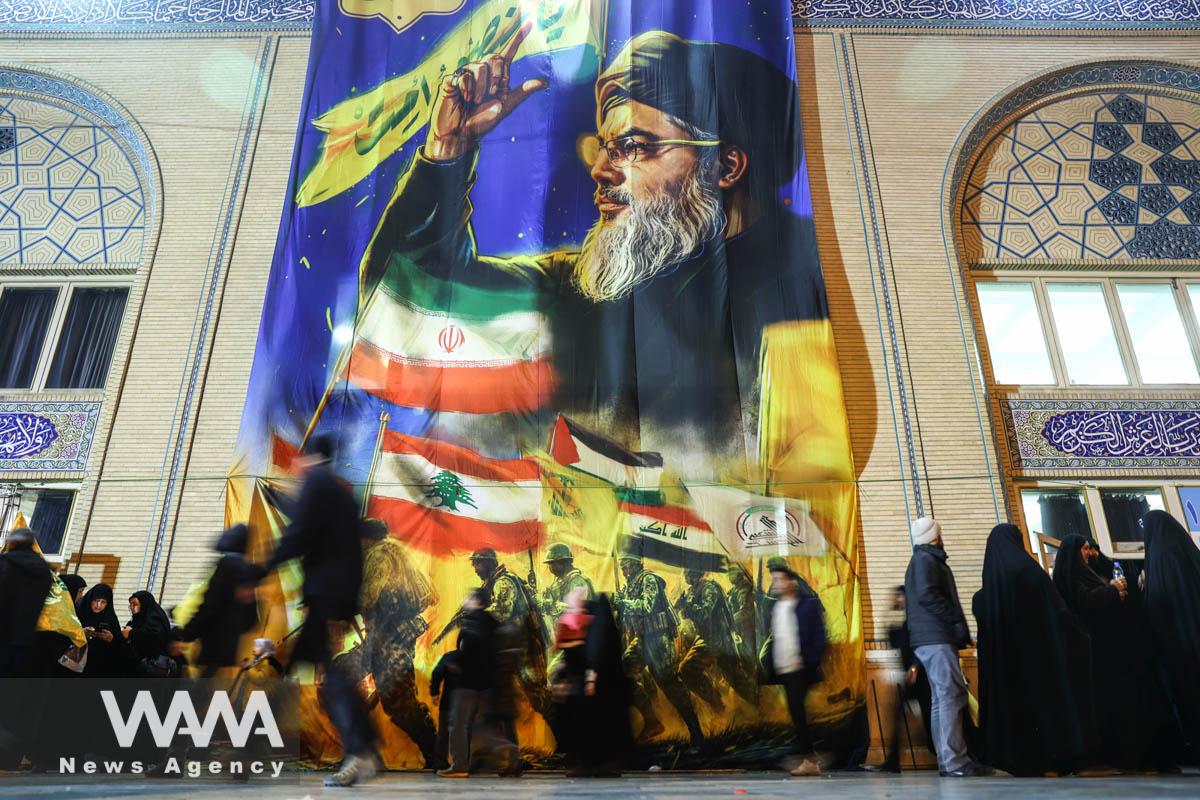WANA (Nov 03) – Iran’s Foreign Minister Abbas Araghchi told Al Jazeera that Iran is fully prepared for any possible scenario, including a new war launched by Israel. “I can confidently say that we are even more prepared than before the 12-day war,” he said. “If they repeat that failed experience, they will face the same result.”
“A Failed Experience Will Lead to Another Failure”
Araghchi emphasized that Israel achieved none of its goals in the 12-day conflict and that the outcome of any new confrontation would be no different. “We know both our own weaknesses and those of the enemy,” he added. “Today, we are more ready than ever — technically, operationally, and psychologically.”
Referring to Israel’s air defense systems, Araghchi stated: “Their air defense is penetrable — our missiles broke through it.”
Trace of an Irainan missile is seen in the sky in Tehran, Iran, June 18, 2025. Majid Asgaripour/WANA (West Asia News Agency)
Readiness as a Deterrent to War
The foreign minister reiterated that Iran does not seek war but considers preparedness the best deterrent. “Our readiness for war is the best way to prevent one,” he said, noting that during the previous conflict, Tehran worked to prevent the fighting from spreading across the Gulf region.
“We have no interest in war or its expansion,” he continued, “but we are dealing with a regime that thrives on war and wants to drag the whole region into conflict.”
Netanyahu’s Deceptive Message and the U.S. Role in the War
Asked about a message reportedly sent by Israeli Prime Minister Benjamin Netanyahu through Vladimir Putin, Araghchi responded: “We never trust what Israeli officials say — deception is always a possibility.”
He added that Israel’s attack had the approval of Washington: “This was the result of negotiating with the Americans — we’ve learned that lesson.”
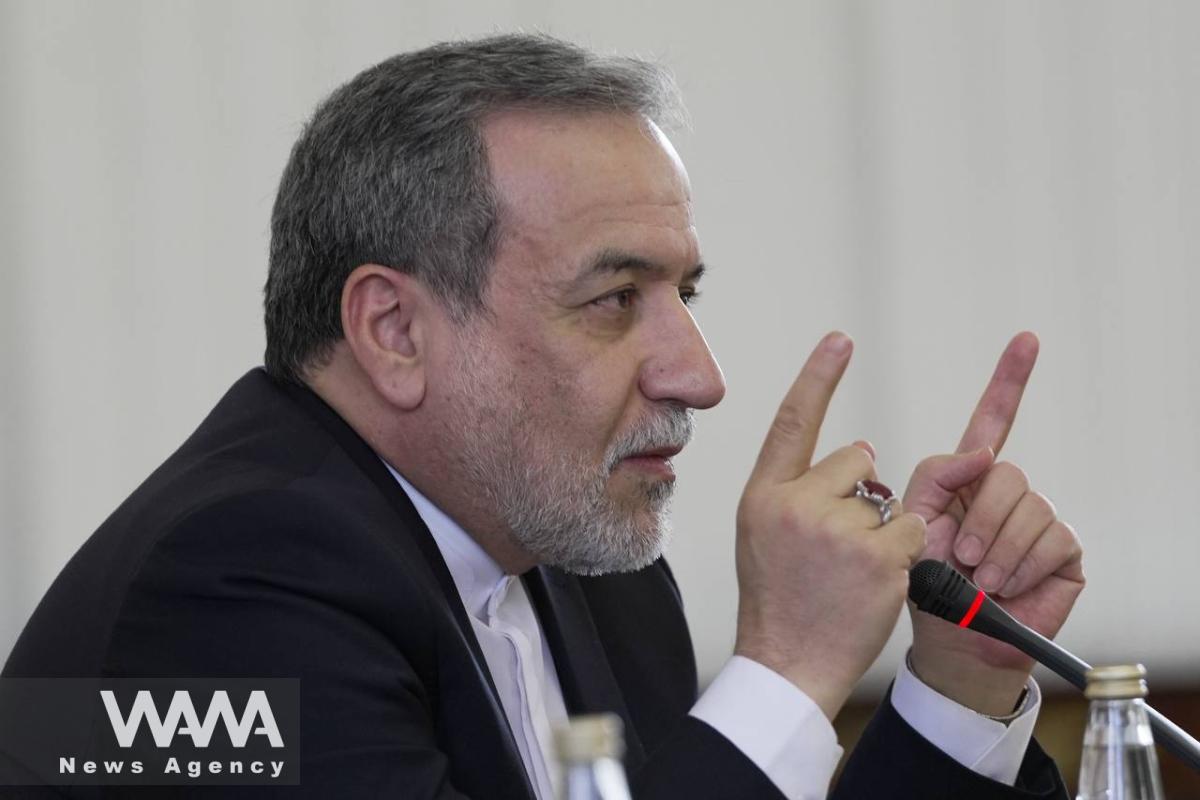
WANA (Nov 03) – Iran’s Foreign Minister said on Sunday night that it was not Iran that destroyed diplomacy, but those who “blew up the negotiating table.” He added that Israel attacked diplomacy because its real fear was the collapse of its “project to manufacture an enemy out of Iran.” Araghchi stated that over […]
Disputes Over Snapback Sanctions
Regarding the so-called “snapback” of UN sanctions, Araghchi said there is serious disagreement among Security Council members over the legality of the U.S. and European move. “More than 120 countries of the Non-Aligned Movement have supported the positions of Iran, Russia, and China,” he noted. “That proves there is no international consensus against Iran.”
“It Was an American–Israeli War”
“This war was an American–Israeli operation,” Araghchi declared. “Israel could not have carried it out without U.S. authorization — and won’t be able to in the future.”
Protesters burn Israeli and U.S. flags during an anti-Israeli protest after Friday prayers, amid the Iran-Israel conflict, in Tehran, Iran, June 20, 2025. Majid Asgaripour/WANA (West Asia News Agency)
No Negotiation on Missiles or Enrichment
Addressing Iran’s position on talks with Washington, Araghchi said: “Our stance is clear and longstanding — we are ready for fair negotiations conducted on equal terms. But the Americans continue to demand unreasonable conditions.”
He ruled out any discussion on Iran’s missile capabilities or nuclear enrichment: “Zero enrichment is impossible. What our scientists achieved cannot be bargained away. What they failed to gain in war, they won’t gain at the negotiating table. No sane nation would disarm itself.”
Enriched Material “Still Under the Rubble”
Commenting on the fate of Iran’s 60% enriched uranium stockpile after recent attacks, Araghchi said: “They are still where they were before — under the rubble. We have no plans to remove them until conditions allow.”
“The damage is considerable,” he admitted, “but neither our technology nor the determination of the Iranian people has been destroyed.”
On the “Axis of Resistance” and Regional Allies
Asked why Iran’s allied groups did not participate in the recent conflict, Araghchi responded: “We support groups such as Hezbollah and Hamas because they fight for a legitimate cause. But Iran is strong enough to defend itself — it doesn’t need anyone else to do so.”
He rejected the notion that these groups act as Iranian proxies: “They are not Iran’s proxies; they are liberation movements resisting Israeli occupation.”
Relations with Syria, Turkey, and Saudi Arabia
Regarding Syria, Araghchi said: “We have always supported Syria’s independence and territorial integrity. We want a stable, unified Syria free from occupation. The current government in Damascus has little interest in engagement, and we’re not in a hurry either.”
On Turkey, he commented: “We have close and friendly relations with Turkey. We may differ over Syria, but our concerns are now well understood by them.”
He also highlighted improved ties with Saudi Arabia: “Our relations with Saudi Arabia are now friendly. I have met the Saudi Crown Prince four times, and both countries agree on the importance of stability and coexistence in the region.”
Engagement Without Capitulation
Concluding his remarks, Araghchi stated: “If by ‘softening’ you mean surrendering to enemies — no. But if it means wise engagement with the world — yes. We are ready for diplomacy, though others have betrayed it. Our priority is our neighbors, and we will continue the policy of good neighborliness with strength.”
